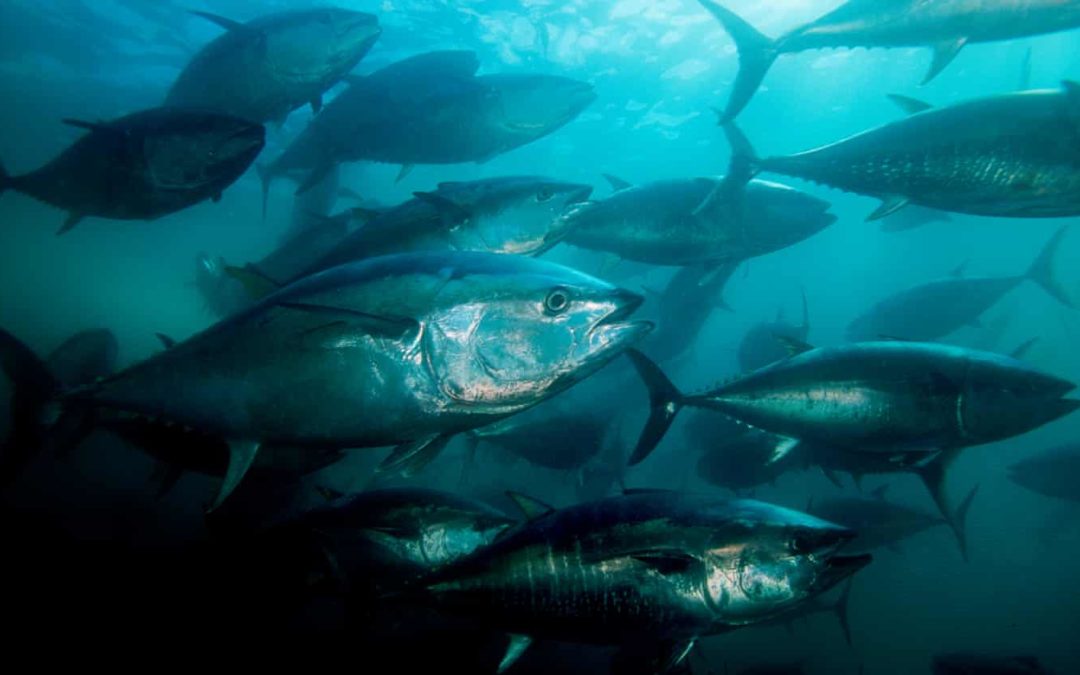SOURCE: The Guardian
DATE: December 7, 2019
SNIP: Oxygen in the oceans is being lost at an unprecedented rate, with “dead zones” proliferating and hundreds more areas showing oxygen dangerously depleted, as a result of the climate emergency and intensive farming, experts have warned.
Sharks, tuna, marlin and other large fish species were at particular risk, scientists said, with many vital ecosystems in danger of collapse. Dead zones – where oxygen is effectively absent – have quadrupled in extent in the last half-century, and there are also at least 700 areas where oxygen is at dangerously low levels, up from 45 when research was undertaken in the 1960s.
All fish need dissolved oxygen, but the biggest species are particularly vulnerable to depleted oxygen levels because they need much more to survive. Evidence shows that depleted levels are forcing them to move towards the surface and to shallow areas of sea, where they are more vulnerable to fishing.
Some ocean areas are naturally lower in oxygen than others, but these are even more susceptible to damage when their oxygen levels are depleted further, the report’s authors said. Species that can more easily tolerate low oxygen levels, such as jellyfish, some squid and marine microbes, can flourish at the expense of fish, upsetting the balance of ecosystems. The natural oceanic cycles of phosphorus and nitrogen are also at risk.
The world’s oceans are already being overfished, and assailed by a rising tide of plastic waste, as well as other pollutants. Seas are about 26% more acidic than in pre-industrial times because of absorbing the excess carbon dioxide in the atmosphere, according to the Intergovernmental Panel on Climate Change, with damaging impacts on shellfish in particular.
Low oxygen levels are also associated with global heating, because the warmer water holds less oxygen and the heating causes stratification, so there is less of the vital mixing of oxygen-rich and oxygen-poor layers. Oceans are expected to lose about 3-4% of their oxygen by the end of this century, but the impact will be much greater in the levels closest to the surface, where many species are concentrated, and in the mid to high latitudes.
Intensive farming also plays a major role. When excess artificial fertiliser from crops, or manure from the meat industry, runs off the land and into rivers and seas, it feeds algae which bloom and then cause oxygen depletion as they decompose.

